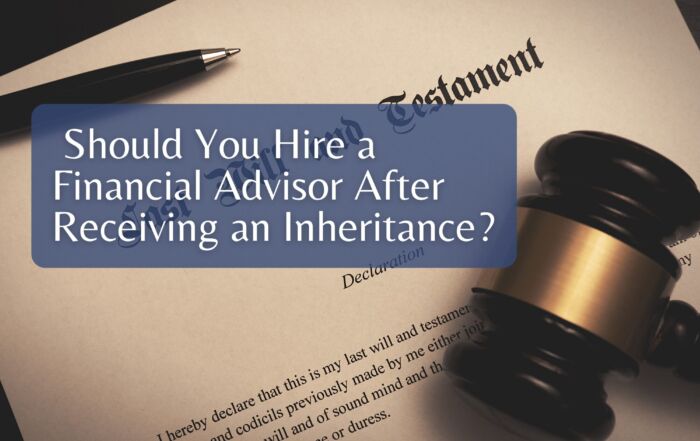Should I be a joint tenant on accounts with my aging parent?

Adding yourself as a joint tenant on your aging parent’s accounts might seem like a simple solution to manage their finances. It offers some advantages, such as easy access to funds for bill payments, simplified asset transfer upon death, and convenience for day-to-day financial management. However, there can be drawbacks and unintended consequences to consider.
Potential Negatives of Joint Tenancy
1. Gift Tax Implications: Adding yourself as a joint tenant can be considered a completed gift, potentially carrying gift tax implications if reported correctly. Although the intent is often to facilitate daily access, it is technically a gift.
2. Liability for Debts: As a joint tenant, you are equally liable for any debts or liabilities associated with the account. Creditors can target the account for either party’s debts. Moreover, joint accounts might be viewed as available resources when applying for Medicaid, potentially affecting eligibility.
3. Impact on Cost Basis: Joint tenancy can affect the step-up in cost basis for a home and/or stocks when your parent passes away. Normally, assets receive a step-up in cost basis to their value at the time of the owner’s death. For example, a stock bought for $10,000 that is worth $50,000 at the time of the parent’s death would have its cost basis adjusted to $50,000, eliminating the $40,000 unrealized gain. If the account is jointly held, only half the value gets stepped up, leaving you with an unrealized gain on the portion you own.
4. Risk of Unintentional Disinheritance: A joint tenancy with the right of survivorship means the surviving tenant inherits the entire account, regardless of the estate plan or intended wishes. This could disinherit other heirs unintentionally. Even if the surviving tenant wants to honor the family’s wishes and distribute the assets, it is considered a gift, which could trigger gift tax implications and retain the unstepped-up cost basis/unrealized gain.
Alternative Solutions
Given the potential complications, I recommend handling your finances differently with a clearer structure, especially if multiple heirs are involved.
1. Financial Power of Attorney: Establishing a financial power of attorney allows you to manage your parent’s finances while they are alive without the complexities of joint tenancy.
2. Payable on Death (POD) Designation: A POD designation names a beneficiary who will receive the account’s assets upon the parent’s death, bypassing the will and allowing immediate access for the beneficiaries.
3. Establishing a Trust: A trust can also bypass the will, offering clear distribution parameters and immediate access for beneficiaries. It keeps the step-up in basis intact and avoids gift tax issues.
By using a combination of these options, you can help your parent manage their finances effectively while avoiding the pitfalls of joint tenancy.
Have questions? Feel free to contact us.
Shawna Theriault, CFP®, CPA, CDFA®
Senior Financial Advisor, Wiser Wealth Management
Share This Story, Choose Your Platform!
Wiser Wealth Management, Inc (“Wiser Wealth”) is a registered investment adviser with the U.S. Securities and Exchange Commission (SEC). As a registered investment adviser, Wiser Wealth and its employees are subject to various rules, filings, and requirements. You can visit the SEC’s website here to obtain further information on our firm or investment adviser’s registration.
Wiser Wealth’s website provides general information regarding our business along with access to additional investment related information, various financial calculators, and external / third party links. Material presented on this website is believed to be from reliable sources and is meant for informational purposes only. Wiser Wealth does not endorse or accept responsibility for the content of any third-party website and is not affiliated with any third-party website or social media page. Wiser Wealth does not expressly or implicitly adopt or endorse any of the expressions, opinions or content posted by third party websites or on social media pages. While Wiser Wealth uses reasonable efforts to obtain information from sources it believes to be reliable, we make no representation that the information or opinions contained in our publications are accurate, reliable, or complete.
To the extent that you utilize any financial calculators or links in our website, you acknowledge and understand that the information provided to you should not be construed as personal investment advice from Wiser Wealth or any of its investment professionals. Advice provided by Wiser Wealth is given only within the context of our contractual agreement with the client. Wiser Wealth does not offer legal, accounting or tax advice. Consult your own attorney, accountant, and other professionals for these services.





